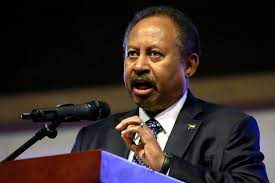Sudan’s Abdalla Hamdok Has Resigned As Prime Minister:

Sudan’s Abdalla Hamdok has resigned as prime minister, six weeks after returning to his post following a military coup in October.
- The move deepens uncertainty around Sudan’s political future and a transition towards elections since the 2019 downfall of long-serving ruler Omar al-Bashir.
- Hamdok had served as prime minister for more than two years under a power-sharing arrangement between civilians and the army, until the military toppled him in October, accusing politicians of hostility to the army.
- Under an agreement to partly reverse that coup, he returned to lead a government of technocrats, intended to serve until elections in 2023.
- But his deal with the military was opposed by key political parties and by the protest movement that had brought down Bashir.
- Hamdok had said he would only stay in his post only if he could mobilise political support. But on Jan 2 in a televised address he said he had been unable to unite polarised factions sufficiently to be able to move forward with the transition.
- The fate of the transition will determine the balance of power in Sudan, a country of 46 million people in which a popular uprising had carved a way out from decades of autocracy, internal conflict and economic isolation under Bashir.
- Sudan’s course will have a bearing on a volatile region bordering the Sahel, the Red Sea and the Horn of Africa where international powers are vying for influence. The conflict in Ethiopia’s Tigray region sent tens of thousands of refugees into Sudan one year ago, and renewed tensions over farmlands on the neighbours’ disputed border.




